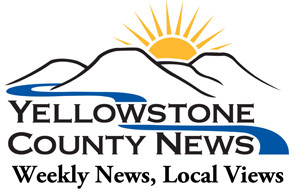HELENA — Gov. Steve Bullock has convened a special session of the Montana Legislature to address a $227 million shortfall in the state budget.
Bullock announced on Monday that the special session will begin at noon Tuesday, Nov. 14 at the state Capitol, although hearings will begin on Monday.
Bullock said legislators must address the $227 million revenue shortfall through an equal combination of cuts, revenue increases, and transfers and other legislation based on realistic revenue projections.
“I have put forth a set of reasonable and thoughtful proposals to balance Montana’s budget for consideration by the Legislature,” said Bullock. “It’s time Montana leaders fulfill our responsibilities to the people we represent and balance our budget in a way that makes sense for Montana taxpayers, workers, and families.”
He said he expects the special session to be “quick and productive,” and he still hopes “a deal will be reached prior to the Legislature’s arrival back in Helena next week.”
Bullock has proposed to the Montana Legislature to address the $227 million revenue shortfall through an equal combination of cuts, revenue increases, and transfers and other legislation based on realistic revenue projections.
“I look forward to resolving our budget situation by the end of the month and then refocusing on growing Montana’s economy, creating more good-paying jobs, and investing in the health of our communities,” Bullock continued.
A revenue shortfall “created by overly optimistic revenue projections by the Legislature” combined with “the most expensive fire season in state history” led to the shortfall, Bullock said.
Bullock has proposed cutting spending in several areas, including suspending the state’s employer contribution to the state health plan and the judges’ retirement system, and increasing revenue by auctioning liquor licenses and temporarily increasing taxes for rental cars, hotels and campgrounds.
Montana Republican Party Chairwoman Debra Lamm said the budget shortfall can be traced back to the governor’s actions.
“The buck stops with Gov. Bullock: He mismanaged the state budget and spent beyond our means,” Lamm said. “We need to get our spending in order and that means cutting the bloat and bureaucracy in Helena, identifying savings, and making responsible and targeted spending cuts that protect the most vulnerable.”
“I strongly warn Montanans not to be fooled by Bullock’s call for temporary tax increases. There’s no such thing as temporary tax increases, and if he gets his way, there is no doubt in my mind that these temporary tax increases will become permanent tax increases.”
Bullock has the authority to cut budgets for state agencies by up to 10 percent. He said Monday he will implement a 6.61 percent reduction in general fund spending after the special session.
That worries Speaker of the House Austin Knudsen, who said that by reserving his spending reduction until after the session, the governor is sending a clear signal of what he expects legislators to do.
Knudsen, R-Culbertson, believes consensus can be reached on some proposals, like fund transfers. But proposed tax increases, “temporary or not,” will not go over in the House of Representatives, he said.
“Reading between the lines,” Knudsen said, he believes the governor “wants us to raise taxes or else.”
He doesn’t think that will work.
“I do not believe that the votes are there,” he said, “certainly in the House,” although he can’t speak for the Senate.
Senate President Scott Sales did not return calls for comment on Monday afternoon.
The current fiscal year began July 1. Knudsen said it’s too early in the fiscal year for Bullock to determine that revenue projections were “overly optimistic.”
“If the governor wants to point fingers and say this is all our fault, that’s fine,” Knudsen said. On the other hand, “We don’t know if the governor’s numbers are right. If ours are optimistic, his are pessimistic.”
This is Knudsen’s first experience with a special session. He estimated the first day of the session could cost well over $100,000, with staff and legislator pay along with other expenses.
“It’s not insignificant,” he said, although subsequent days would cost less. The special session cost may need to be addressed in the next regular legislative session, he said.
Nov62017
Gov. Bullock calls special legislative session
Please follow and like us:

